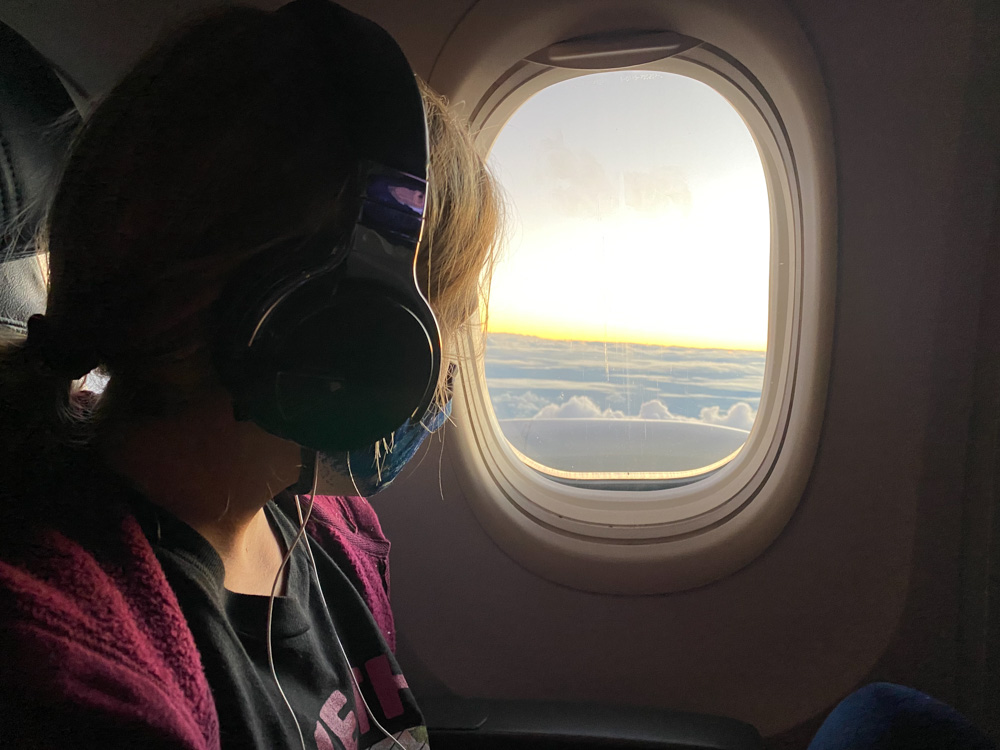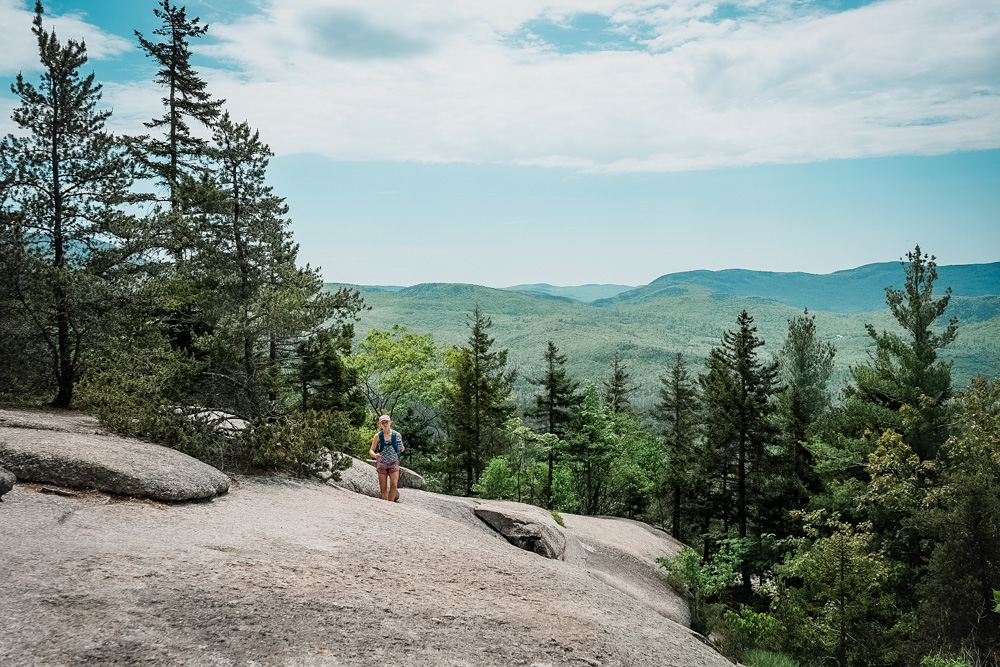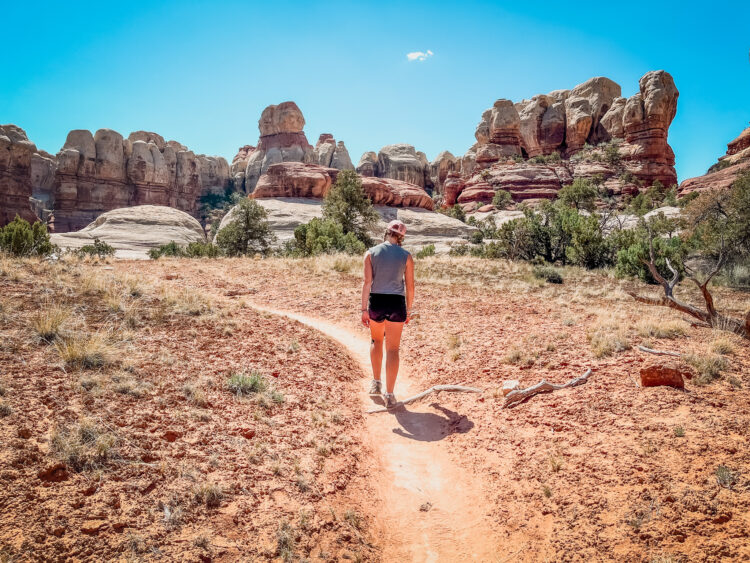As an Amazon and other Affiliate, I may receive compensation when you purchase items through links on this page.
A few months ago we visited Sedona, Arizona. Just after sunrise, we stood at Devil’s Bridge. In one direction, you can snap a photo of the arch outlined against the distant canyons of Sedona- but turn around and you’ll find a line of 100 people waiting to snap the same picture. Sedona is only one of many tourist destinations around the world experiencing staggering crowds resulting in environmental concerns and pressure on local culture.
Being responsible travellers (or travelers) means respecting the environment, local culture, and more and making travel decisions that are best for the people and the planet.
But planning responsible travel is hard and takes extra planning. As humans, we consume to survive – food, space, water, and goods. Travel inherently increases our consumption and can create problems – more transportation costs, purchasing more single-use items, visiting fragile environments, etc.
On the other hand, travel opens up doors and provides new perspectives, a better understanding of the natural world, and improved family time and mental health. Deciding how to balance travel versus environmental and ethical responsibility is something each person should consider and work out on their own. Below I share 25 ways you can become a more responsible traveller.
What is Responsible Travel?
Before we get into the ways we can become a more responsible traveller, it’s helpful to briefly define a few terms. Each of these terms is used to describe a different aspect of responsible travel.
What is Sustainable Travel and Why is it Important
Sustainable travel is often used interchangeably with responsible travel and covers concerns for economic, social, and environmental issues. It also is used to mean tourism that can sustain itself and the local communities. Sustainable tourism is crucial to creating a tourist industry with a lasting tourist-driven economy while maintaining the local culture and environment.
What is Ecotourism and Why is It Important?
Ecotourism specifical focused on the environment and protecting endangered species, habitats, and more. Ecotourism often goes hand in hand with protecting the local people. An increasing number of tours and resorts are positioning themselves as eco-tourist choices.
What is Culturally Responsible Travel
Culturally responsible travel focuses more on maintaining the culture of the destination. It can be difficult to know if something is culturally responsible. Visiting a local village on your next trip may provide a source of income for the people, or it may be showcasing an inaccurate culture with the bulk of the income going to the organizers of the tour, not the local people.
Voluntourism
Voluntourism refers to a spend all or part of a vacation volunteering. There are many models for this, but it’s important to be clear and honest with your goals. Most volunteer vacations are wonderful opportunities for the traveler but don’t actually improve the life or environment of the local place you are visiting. It’s important to think carefully about the volunteer opportunity.
Visiting a school for a day may be a wonderful opportunity for you to gain perspective, but it does little to improve the lives of the people. Many voluntourism opportunities use the funding that comes with hosting volunteers to support their work. There is value to this, but you will need to decide on an individual basis what you are hoping to achieve with your volunteer work. It may be best to take a trip and donate money to a local organization.

Why we Need to be Responsible Travellers
Travel is a privilege and we are all responsible for ensuring that the places we visit and love remain beautiful and authentic for the people who live there and the people who visit in the future. Overtourism and tourists who don’t respect the environment or culture of the places they are visiting are contributing to the problems. Here are a few facts that highlight the need to be a responsible traveller and the changing perspective around sustainable travel:
- The number of international world arrivals is expected to reach 1.8 billion by 2030 (well over double the number in 2005). -United Nations
- More than 87% of travelers want to travel more sustainably. – Study conducted by booking.com
- The hotel sector of the economy accounts for over 1% of global carbon emissions. – United Nations
- Aviation accounts for about 2.5% of carbon emissions. – International Civil Aviation Organization
- 60% of travelers state that natural beauty is what drew them to a place
25 Ways to be a Responsible Traveller
Below you can find 25 ways to be a responsible traveller – from big to small changes.
Buy Local Items
Whenever you can try to purchase local items directly from local people. While it might be easier to get a t-shirt in the airport, shopping local ensures that the tourist dollars actually go to support the people who live in these tourist destinations. Too often tourism is touted as an economic solution to local issues, but this only works if the money goes to the local people.
Consider Volunteering
Volunteering is a tricky thing when it comes to travel, and you should commit to doing your research into any organization you plan to volunteer with during your trip. Some volunteer organizations do wonderful work and your volunteer hours are completely necessary to running the organization. On the other hand, some volunteer organizations don’t need help, but do rely on the money tourists pay when they volunteer. As long as this organization still does valuable work it may still be worth volunteering with them.
On the other end of the spectrum, there are some volunteer tourism activities where your help is not required and the people or environment you are volunteering to help don’t benefit from your volunteer activity. Be very clear about what you want to accomplish and who your volunteer work is benefiting. Here are a few examples:
- Volunteer work that needs your hours: A beach clean up where volunteers work to pick up trash from a beach
- Volunteer work that needs your money but still benefits the community: Visiting an animal sanctuary/rescue that relies on funds to serve the animals and then releases them back to the environment (again – do your homework!)
- Volunteer work that might benefit you but doesn’t benefit the community: Visiting a local school for a morning and teaching English – this is likely disruptive to the students and one lesson does not offer a real benefit.
Other concerns over voluntourism are that it takes away jobs from the local people, often leads to businesses that thrive on exploitation (such as Orphanages – see this article from the Huffington Post), and can drain local resources.
Volunteering has many benefits for both the people volunteering and the communities you visit if done well. The take-away is to do you research and be clean of your goals.

Avoid using Single-Use Plastic Bottles
This is an easy and obvious way to help the environment, but also difficult when you are traveling. Just visit any beach around the world and you will likely see single-use plastic. Single-use plastic is often convenient when you are traveling and you will need to work harder to avoid plastics. Common single-use plastics when you travel include water bottles, plastic and food containers, and toiletries and containers. Carry a reusable water bottle and when possible, buy a large water jug to refill your water when needed. You can also use your own container and ask street vendors to use this when giving you food. Below are a few tools that are helpful to reduce plastic pollution.
Avoid Flying
Airplanes use a tremendous amount of Carbon and release that carbon directly into the upper atmosphere. When possible, avoid flying and choose more carbon-friendly ways to travel. Trains and buses both offer more environmentally friendly options for getting from place to place.
Offset Your Carbon Footprint
Even when you make every effort to reduce your carbon footprint, travel still requires that you take transportation and stay in hotels or resorts that emit carbon. One option is to pay to offset the carbon you produce on your flight and other travel. Some people are critical of this approach, stating that this merely makes you feel better and you may be less likely to work to reduce your carbon footprint. Despite this, it is still a step in the right direction to be aware of the problem and take one step towards taking responsibility for your carbon footprint.
To offset your carbon footprint, check out the website Gold Standard.
Choose an Eco-Friendly Resort
With a growing interest in ecotourism, many resorts are committed to being eco-friendly. What this means varies widely from resort to resort. For some resorts, it means not washing the towels everyday, while for other resorts, it’s committing to renewable energy, growing the food they serve in their restaurants, and conserving water. Like anything, you need to do your reserach for what exactly a resort means when it claims it is an eco-resort.
To choose the best eco-friendly resort for your next stay consider:
- Where does their energy come from?
- Who do they employ? (locals?)
- How does the hotel dispose of waste and recycle?
- How is the resort involved in the ocmmunity?
- Where does the resort get its water?
This is clearly a lot of research to do on your own. In the US, you can also check the LEED certification status of the hotel.
Another option we’ve used recently is some hotel search engines now allow you to filter for eco-friendly options. You can do this on booking.com by doing your initial search and selecting the filter on the side of the screen that says ‘travel sustainable properties’. This is a relatively new feature that allows resorts to earn a badge (learn more here).

Choose Socially and Environmentally Conscious Tours
Another consideration on your next trip when you want to be a responsible traveller is booking the right tour. The best activities and tours are culturally and environmentally aware and led by local people. Consider whether the tour is looking at treats the people and place respectfully. This can be very difficult to determine. Is visiting a local village a socially conscious tour? It could be, it might not be. It’s always helpful to read the reviews of any tour to hear from people who have been there. You can also look for who runs the tour or wait until you arrive to your destination and book directly.
Don’t Take Local People’s Photos Without Permission
When traveling, respect the local community by asking before taking photos of locals. Many people are completely fine and encourage having their photos taking, some will ask for compensation of some sort, while for others, it’s an invasion of their privacy.
Get into Town and Talk with the Locals
Even if you are spending your next vacation at a resort, make sure you find time to get into the local community. Tours are great opportunities to get out and see more of a town or country, but even better is spending time on your own exploring a town or city. As an introvert, I don’t enjoy talking to strangers, but there are many easy ways to chat with folks and get to know more about the local communities: chat to people in stores ot talk with your waiter.

Choose Tours and Activities Run by Locals
Finding authentic tours and activities is a great way to connect with the local community. Make sure you select tours run by local people and choose activities that positively support local culture and the environment. It’s often easiest to find the best local tours when you arrive at your destination, but to ensure you have a spot, you can book in advance through sites like Viator or Get Your Guide.
Do Your Research When Selecting Animal Encounters
Animal encounters are amazing ways to learn more about a local place. It’s also very difficult to choose ethical animal encounters. The best animal encounters occur in the animal’s natural habitat (think scuba diving). If you are visiting animals in a zoo or sanctuary, it’s worth doing some homework about how they treat their animals.
We’ve visited several animal rescue organizations. Some of them are true rescues that take care of the animals and then work to release them back into the wild, but we also visited an animal rescue that clearly did not care for the animals the way they should have. Read as many reviews online from people who have actually been to the facility.
Here are just a few animal encounters to avoid:
- Riding elephants
- Taking photos with tigers
- Swimming in a tank with dolphins
- Feeding wild animals

Keep an Eye On Your Waste
As you travel, keep an eye on the amount of waste to are producing. At home, it is easy to see your trash at the end of the week, but when you travel, you will want to pay more attention. We’ve also found that there is limited recycling in some places. Make the extra effort to carry your recycling longer until you find a place that accepts recycling. This might mean keeping a bag of recyclable objects on your road trip, or taking your bottles from your hotel room to a recycling bin in town.
Choose to Visit Less Touristy Destinations
As the travel industry picks back up following the pandemic, some of the most popular travel sites around the world are facing significant overcrowding problems. Selecting to visit smaller sites, less famous cities and State Parks instead of National Parks can help reduce the overcrowding problem and provide better experiences for everyone.
Often the secondary sites are not only less crowded but offer more authentic travel experiences. Choosing secondary sites also diminishes the environmental impact on popular sites.
Travel During the Off-Season
For some people, traveling during the offseason isn’t an option, but if you have flexibility, traveling during the shoulder or even off-season can be a win for you and a win for overcrowded destinations. Often popular sites offer lower prices and you will be able to book popular restaurants, hotels and tours that are simply too overcrowded during the busy season.
For the destinations, visiting during the offseason provides jobs that extend past the short seasonal positions and also helps bring income to local businesses that often struggle in the offseason. You also limit the impact on fragile environments and services by visiting during the less busy time of the year.

Always Practice Leave No Trace
Practicing leave no trace ensures that the natural places you visit remain natural. The general idea is that you should leave the places you visit the way you found them (or better). These principles are meant to apply to the environment, but can also serve as general reminders of all the places we visit.
There are 7 principles of Leave No Trace.
- Plan Ahead and Prepare: A well-prepared trip will lead to a more enjoyable experience for everyone AND will also make it easier to practice sustainability.
- Travel and Camp on Durable Surfaces: By staying on established trails you are helping to reduce erosion. This means not taking cut-through trails and if you need to go off-trail, choose to walk on surfaces well suited to travel such as gravel or rocks. In addition, you should always camp on established campsites.
- Always dispose of all waste: Pack out your trash, dispose of human waste by burying or carrying it out, reduce food waste, and clean dishes 200 feet from water sources.
- Leave What you Find: Don’t take items from the forest – this includes removing plants, rocks, or other items. This also applies to damaging trees or carving things into rocks.
- Minimize campfires: Create fire only in designated areas or use a stove instead.
- Respect Wildlife: observe wildlife from a safe distance and do not disturb them. Never feed animals in the wild as this can harm them, or cause them to rely on food during busy seasons and starve during the offseason.
- Be Considerate of Others: Respect that the outdoors is for everyone and respect others. A few ways you can do this is to allow uphill hikers to pass on trails and listen to music on headphones.
Respect Local Cultures and Traditions
While it may seem illogical at times to follow certain local rules, it’s important to remember that we are all guests and visitors when we travel. In some places, this means wearing certain clothing when visiting sacred places. Other examples of respecting local cultures and traditions even extend down to tipping and other practices.
Use Shampoo Bars and other Trash Reducing Products
In addition to reducing your single-use plastic as described above, using low-impact products can help reduce waste and use environmentally friendly products. We’ve started traveling with these shampoo bars and find it much easier to travel.
Purchase your Gear Second Hand
While this doesn’t strictly apply to travel, purchasing gear secondhand is better for the environment and can save you money. This applies to clothes as well as travel gear. Many outdoor shops offer yearly second-hand gear exchanges or you can visit thrift stores to find barely used outdoor gear. You can also check places like Craigslist or Facebook Marketplace to find used gear,
Don’t Waste Food
The amount of food wasted is incredible. Commit to not wasting food whether you are eating in your hotel room or out at a fancy restaurant. Always order just what you need to eat and if you can, take leftovers to eat later. When you travel, consider eating out just some of your meals and getting food at local snack shops or grocery stores for other meals.

Keep an Eye on Your Water Consumption
Many popular destinations have a limited water supply and conserving water can go a long way toward reducing your environmental impact when you travel and being a responsible traveller. There are many ways to reduce your water usage, consider:
- Taking short showers (no more than 5 minutes)
- Ask for fewer mid-trip room cleans
- Reuse your towels
- Handwash your laundry
- Consider using a water filter
Use Eco-Friendly Sunscreen
Sunscreens are becoming a bigger problem in terms of their impact on reefs around the world and being a responsible traveller means choosing eco-friendly products.. It may not seem like a lot, but many popular places are getting loaded with sunscreen day after day. Choose non-nano mineral sunblocks. The first time we used eco-friendly sunscreen, we misapplied and got burnt. Make sure to rub in well and apply every 2 hours.
We like the Sun Bum sunscreen when we are going to be in the water.
Choose your Restaurant Wisely (environment and culture)
Choosing a local and environmental restaurant helps to support local businesses doing the right thing, and gives you a better dining experience. While it’s sometimes hard to know if a dining establishment is locally owned, you can start by selecting smaller restaurants and not chains. Look for restaurants that promote healthily and or locally sourced food. With a growing emphasis on local food, many restaurants are promoting themselves specifically as ethical choices.
Avoid Handing Out Money to Children
While it might seem counterintuitive, simply giving money to kids when traveling is often not the best way to help the local community and these kids. By giving money to kids, they are seen as more valuable as beggars and are pulled out of school to help the family. In addition, sometimes kids on the street are able to earn more money than their parents, which impacts the family structure. Often the kids turn directly around and give the money to their ‘pimp’ instead of their family.
If you do want to help, consider local organizations that are working to support the community directly.
Learn Some of the Local Language
Many of the ideas above have the power to make a big impact and are tangible, but often smaller gestures go a long way to being a responsible traveller. Simply learning some basic words in the local language is a meaningful gesture to show respect to the local community.
Always do Your Research
This last tip is more of a general piece of advice. Since each destination differs, there may be additional things you can do to be a more responsible traveller. The more you do your research, the more you will know about helping create a more sustainable world. Know what the biggest concerns are in the place you are headed and decide if there are ways you can decrease your impact.

Looking for more ideas around sustainable travel? Check out sustainable travel tips for beginners.
Isn’t it Better to just NOT Travel
After all the ways you can work to reduce your impact when you travel, it’s easy to wonder if maybe it’s better just not to travel at all. In some cases, this might be true. There are times when the best way to be a responsible traveller is simply not to travel.
On the other hand, there are so many benefits to travel and as an industry, the more people demand more sustainable practices, the better travel will be for everyone. Travel that offers new perspectives exposes you to new ideas, teaches you about local animals, and inspires you with culture is good for you and can lead to a better world.
I also don’t think that a move towards no travel is practical in today’s world. Instead being part of the solution may be the best outcome for everyone.
Common Questions about being a Responsible Traveller
Is taking a cruise responsible travel?
Taking a cruise, especially a large cruise is generally not sustainable travel. While there are exceptions, many cruises dump large amounts of concentrated waste at sea and leave waste on small islands that are unable to deal with the waste problem. In addition, many cruise ships come into a town for a few hours. The travelers disembark, wander the street, and don’t spend money contributing to the local economy. This differs from people staying in the town locally, eating out, and contributing to the local economy. The income of a cruise goes to the cruise company, not the local destinations.
If you do plan to take a cruise, choose a smaller cruise line and think about the trip through the lens of sustainability.
The bottom line – to be a responsible traveller on a cruise, do your homework.
(have a question? Leave your question in the comments and I will update this article)









